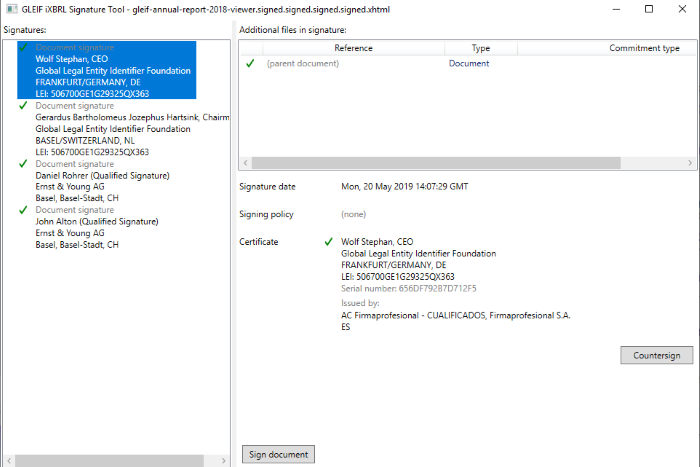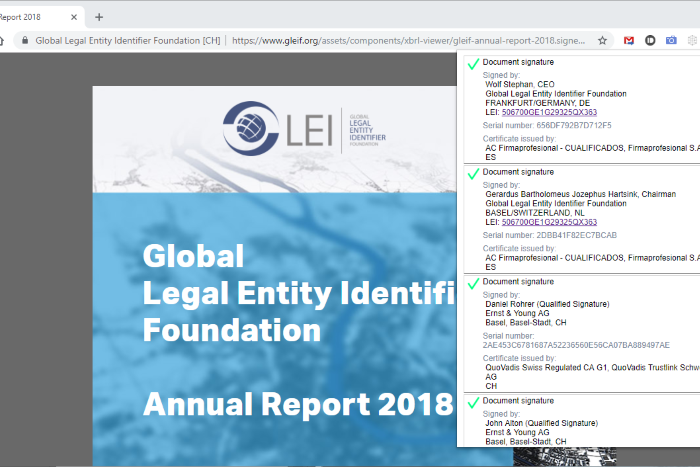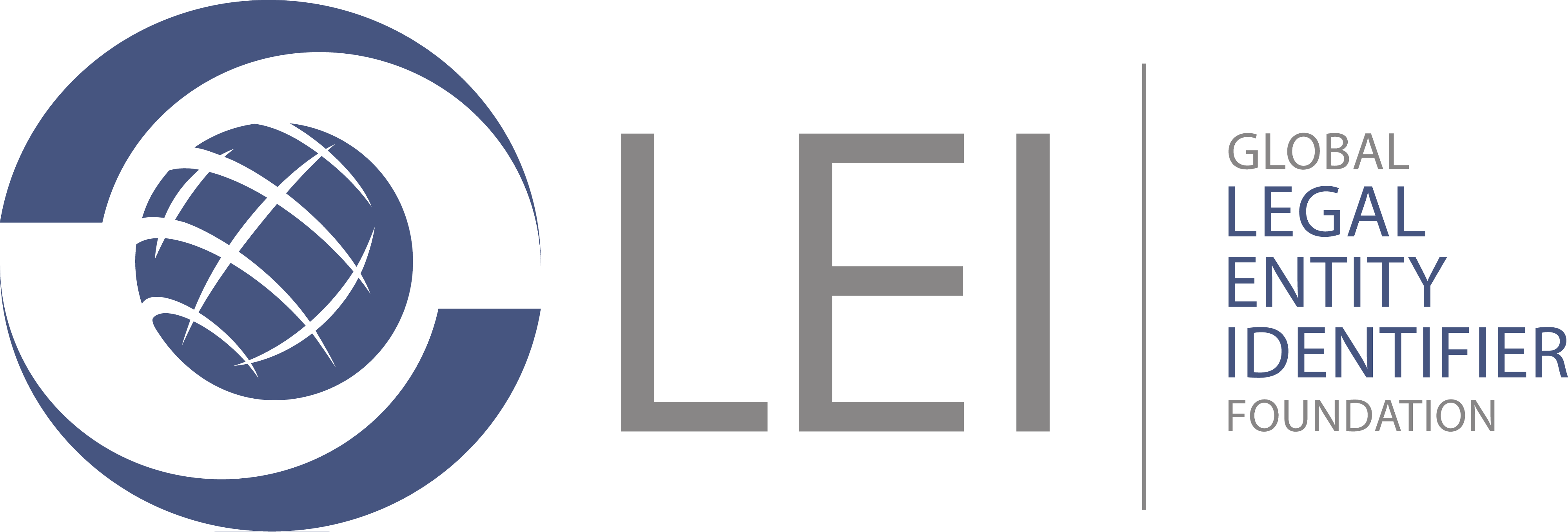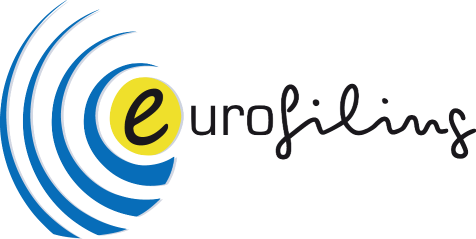Privacy policy
Secure Handling Requirements - User data privacy
Handling of sensitive or personal user data
The browser extensions offered on this website are designed to work with publicly available online data (signed HTML reports can be validated). To be able to validate signatures, the browser extensions (for Chrome, Edge, Firefox) require access to the web page you visit.
Any user data is discarded as soon as the software is finished detecting an electronic signature in a web page. The data is not stored, transmitted, shared or disclosed, neither locally nor online.
The browser extension:
- Does not have a log-in functionality. Use of the extension is anaonymous; users are not identified by us, and no user information is submitted to any external server.
- Does not use forms to collect information
- Does not take screenshots or scrapes information
-
Does not handle the following personal or sensitive user data: personally-identifiable information, financial and payment information, health information, authentication information, form data, user-provided content and personal communications.
- Does not ask, nor searches for, any credentials and does not access cloud services
-
Does not store or transmit personal data. Data is not shared with other parties.
What information do we collect
The browser extension:
-
Does have access to web browsing activity, but this information is only temporarily stored in-memory at the start of the signature validation process and is not transmitted or shared. The information is directly discarded.
- Does scan a visited web page for the occurrence of an Electronic Signature by scanning for a <Signature> node. When s Signature is found, the signature validity is calculated, based on the byte-wise content of the web page. All read information is discarded immediately after this process, and no information is stored, transmitted or shared.
-
Discards any user data immediately after finishing the signature detection and validation process.
-
Does not store or transmit personal data. Data is not shared with other parties.
Secure transmission & encryption
Publicly accessible website content and resources are retrieved through available encrypted channels (https); no non-public information is retrieved or exchanged. The browser extensions does not submit information to an external server (neither operated by OpenSBR nor by any third parties).
Locally stored user data is encrypted using AES-256. There is NO storage or transmission of any user data.
Cookies policy
OpenSBR uses analytical cookies to measure page visits. We comply with internet rules and guidelines by the Dutch Autoriteit Consument & Markt and Autoriteit Persoonsgegevens.
Do we disclose any information to third parties?
No information is shared with third parties.
A separate version of the policy can be found here.





